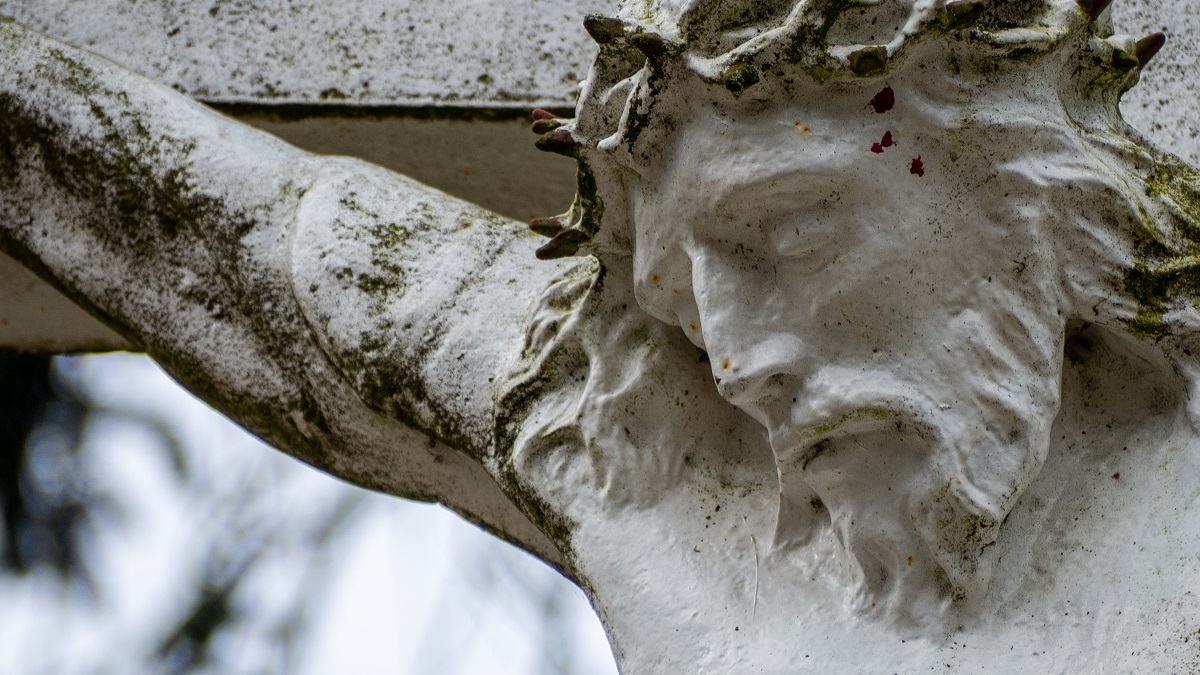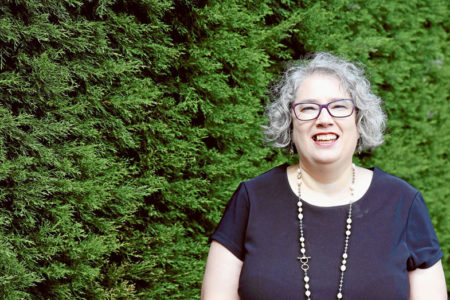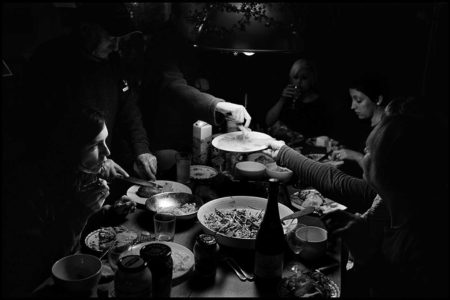By Denise Liersch
“Jesus keeps opening our eyes to recognise him walking life’s path with us. He keeps surprising us with new possibilities of life in God.”
Luke 24: 1-12
Every year we come to Easter via a long journey through Lent, Holy Week and Good Friday, telling each other stories about what Jesus’s life means for us, his friends and followers.
This year, we hear the gospel stories of Jesus through the eyes of Luke. And no matter how familiar we might be with these stories, Luke invites us to listen, as if for the first time.
Luke invites us to listen deeply, to give ourselves over to the story of Jesus, to listen with our whole being. He invites us to imagine ourselves travelling through the story, and to let ourselves be touched to the core by both the griefs and hopes that saturate his story of the resurrection of Jesus. Because for Luke, Good Friday is enmeshed all through this Easter story – from beginning to end.
As Luke tells the story of Easter morning, he sets the scene.
Jesus is dead. His body has been laid in a tomb. A group of women – faithful friends – come to give last rites. They come to wash and prepare Jesus’s body as their final act of love for the one they have lost. It is an act in recognition of lost love, and of lost hope for a future that has passed them by.
As Luke tells this story, he invites us to remember our own griefs and loss: for ourselves, for our loved ones, for our Churches, for our communities, for our world.
Memories, of course, are always mixed.
Jesus’s friends hold mixed memories. They remember their love for him; their lost hopes for him and for themselves; their lost hope for what might have been. Perhaps they have memories of standing at a distance, of not being there for him in his time of need. Perhaps they remember falling asleep, feeling powerless, abandoning him, or pretending they didn’t know him. Their memories don’t paint a picture filled with hope.
So as Luke tells us that the women are coming back to the tomb, to this place of death, to wash and prepare Jesus’s body, we know this would be the end of things. We will all be left with nothing but grief and unanswered questions of what might have been.
In the reading from Luke’s gospel that we hear at Easter – as we come to the end of Luke’s story about the empty tomb – these are the feelings and thoughts we are left with.
None of the characters see the empty tomb and then suddenly leap to joy. In fact, Luke tells us the women are perplexed and terrified. They remember Jesus’s strange words predicting his suffering and dying and rising, but we really don’t hear what they make of it. The women tell the other disciples what they’ve seen, but they are disbelieved and dismissed outright. Seeing the empty tomb, and remaining there, doesn’t bring any sense of hopefulness or happiness. It only adds to the grief and uncertainty.
Yet, in the midst of the story, a question comes to the women – and to us – that gives an inkling of a different future:
“Why do you look for the living among the dead?”
This question finds a crack in the women’s grief. The women thought everything was over, that Jesus was dead and gone, that the door to hope for a different reality was firmly closed. This question opens up a tiny space for a new way of seeing – even if it’s not quite visible yet. It asks the women to question their assumptions, and to take the plunge to see things differently. And so they run to tell the other disciples, even though they’re not quite sure what it is they have seen.

“This is how Luke tells the story of resurrection life. It is not a story of sudden transformation. It is a story that gradually takes shape over a period of time and expands to fill the spaces of people’s lives,” says Denise Liersch.
How hard this is!
How hard it is to let go of past ways of seeing, and imagine a future that isn’t the same as what’s gone before! How hard it is to imagine life could be different to what we’ve always known! How often do we cling to old visions of ourselves, or of our churches, hoping they’ll come back to life –if only we hold on fast to the way we’ve always known and done things before? Could it be, that new life might be found in different places and ways to what we have ever experienced before?
The question to the women, is a question for us too:
“Why do we look for the living among the dead?”
Still, Luke’s story does not end with this question. He moves us on from the tomb, and takes us to different places.
He tells us of a group of disciples who have left the tomb and headed out, walking along the road to Emmaus, remembering and sharing stories of Jesus and what he means to them. They explore the scriptures, break bread, tell each other of their experiences. We hear the disciples’ surprise as their eyes are opened to recognise Jesus is right there with them – though not in the places or ways they expected.
We hear the disciples’ surprise that Jesus is there with them, even though they had not been there for him when he had needed them most. No matter how much they had let Jesus down, or abandoned him in his hour of need, Jesus was with them now. Who could have expected that?
This is how Luke tells the story of resurrection life. It is not a story of sudden transformation. It is a story that gradually takes shape over a period of time and expands to fill the spaces of people’s lives.
Jesus keeps calling us to leave the tomb, and to keep travelling the road ahead. He keeps turning up, in unexpected ways and unexpected places, healing and reconciling us with God, with each other and with ourselves. Jesus keeps opening our eyes to recognise him walking life’s path with us. He keeps surprising us with new possibilities of life in God. Jesus keeps inviting us to be part of the story.
Resurrection faith is about discovering that the body of Christ is no longer in the tomb. Christ is alive in our midst: as we pray, sing and laugh together; as we forgive each other; as we eat and drink together; as we share who we are and what we have with our communities and our world.
This is good news.
The resurrection hasn’t ended. It is still going on.
When we greet each other on Easter morning, we don’t say, “Christ rose 2000 years ago.”
We say, “Christ is risen”; and we answer, “Christ is risen indeed.”

Rev Denise Liersch
Moderator




